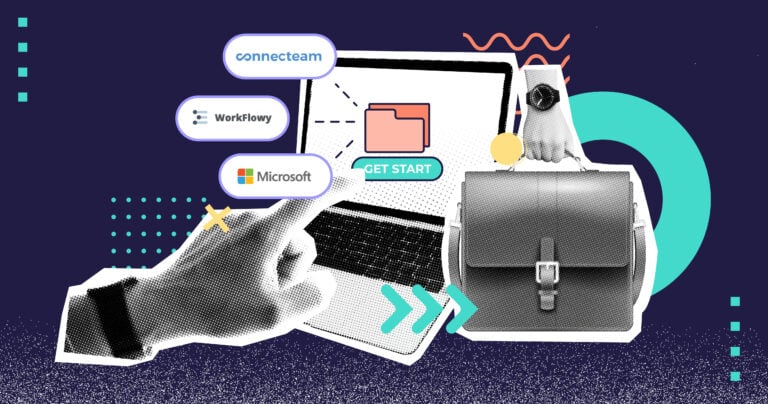The best mystery shopper apps help you manage tasks, collect feedback, and improve customer experiences, without the chaos.
If you’re managing mystery shoppers, you know the stakes. One missed evaluation or messy report can throw off your entire quality control process. Whether you’re running a few locations or overseeing dozens, the right mystery shopper app can keep everything on track.
From assigning visits to verifying check-ins, these tools are built to help you collect better insights, move faster, and make smarter decisions. I reviewed the top-rated mystery shopper apps to find out which ones actually deliver and which ones fall short.
In this guide, I break down the 6 best mystery shopper apps and explain who each one is best suited for.
Our Top Picks
-
1
Best all-in-one Mystery Shopper App
-
2

Good for mobile-friend mystery audits and checklist management
-
3

Good for structured field reporting and automation
Why trust us?
Our team of unbiased software reviewers follows strict editorial guidelines, and our methodology is clear and open to everyone.
See our complete methodology
How I Chose the Best Mystery Shopper Apps
Here are some key features I looked for when picking the best mystery shopping apps:
Must-have features
- Customizable surveys: I wanted apps that let you easily build and update surveys without starting from scratch. Bonus points for logic-based branching.
- Checklists with real-time feedback: Good apps let you guide shoppers step-by-step and collect responses instantly.
- Task and job management: Assign specific tasks, set deadlines, and track progress from one dashboard.
- GPS tracking: To make sure shoppers are actually on-site, no guesswork or blind spots.
- Smart scheduling: You should be able to assign visits, prevent overlaps, and stay ahead of conflicts.
- Photo and video uploads: On-site evidence is critical. The app must support media attachments without friction.
I also made sure the software is:
- Mobile access: Shoppers need full access from their phones while on the job.
- Easy to use: The app should be so intuitive that shoppers can figure it out on their first shift.
Advanced tools that separate the best from the rest
- 1:1 messaging: You need a built-in chat to follow up on flagged issues or clarify tasks.
- Built-in onboarding: Shoppers should complete training inside the app, not via scattered email threads or PDFs.
6 Best Mystery Shopper Apps
-
Connecteam — Best all-in-one Mystery Shopper App
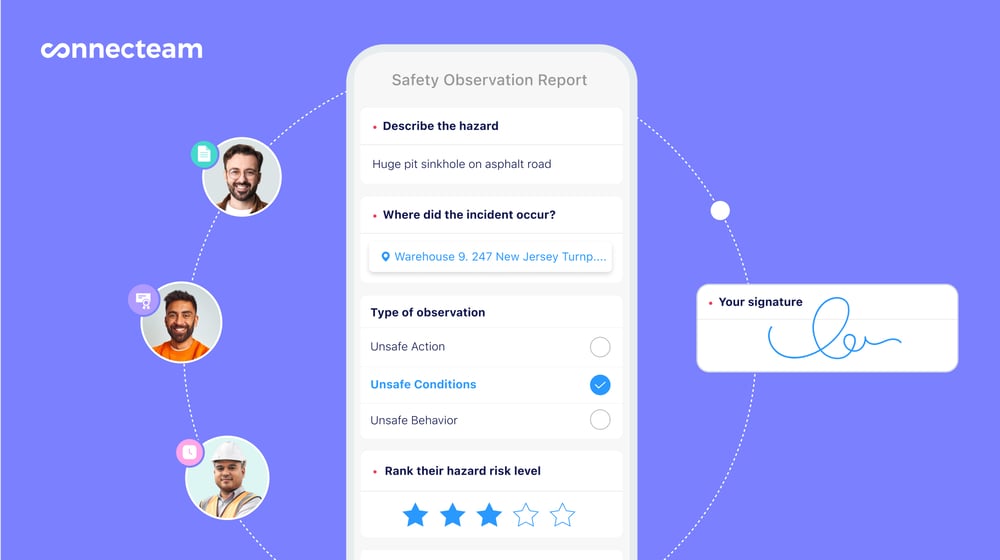
Connecteam is the best all-in-one platform for running a mystery shopping program at scale. It gives you everything in one place—smart scheduling, customizable forms, GPS tracking, live reporting, and team chat—so you can stay in control and act fast.
Why I chose Connecteam: It’s built to scale with your business, whether you’re managing a handful of shoppers or hundreds across locations. Everything you need, including checklists, data, and communication, is right there, ready to go. I especially like how Connecteam makes it easy to assign tasks, collect data, verify visits, and stay in touch with your team all in one place.
Let’s take a closer look at what Connecteam has to offer for mystery shopping:
Customizable forms and checklists
Connecteam makes it simple to build and send digital forms and checklists to mystery shoppers. Plus, there are plenty of templates to choose from if you don’t want to start from scratch. The forms support multiple question types, including multiple choice, rating scales, text responses, signatures, and photo uploads. These submission forms make it easy for shoppers to add on-site evidence to their responses.
One thing I really appreciate is how dynamic the forms are. If a shopper reports an issue (like not being able to find a product), the form can automatically follow up with more specific questions. That means less back-and-forth and more detailed, useful feedback right away.
Managers can create detailed checklists that walk mystery shoppers through every part of the customer experience, from the greeting to the final interaction. The visual format makes it easy for shoppers to stay on track, and built-in geolocation confirms the checklist was completed on-site.
All data updates in real time, so you can instantly see what’s been completed, track responses by location, and export results to share with your team.
Scheduling and team management
What I like about Connecteam is that it’s built to manage your whole team in one place. You can assign mystery shoppers to specific business locations at specific times, and the employee scheduling tool makes it easy to avoid conflicts with regular shifts. You can even automate schedules based on shopper preferences, like proximity to a location, saving you hours of manual coordination.
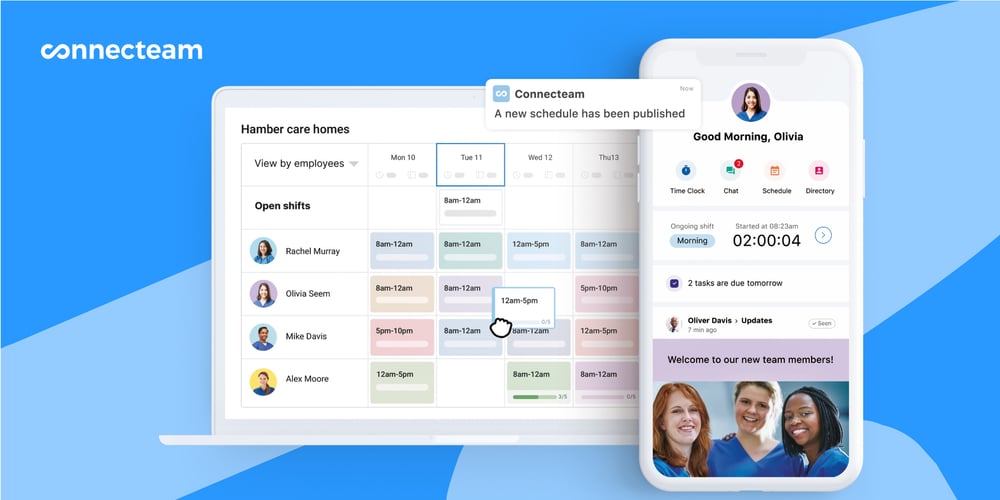
If a shopper needs to swap a visit, they can do that right in the app (with manager approval), keeping everything smooth and flexible. It’s a simple way to coordinate your quality checks without missing a beat.
Real-time reporting and analytics
I like that Connecteam gives you real-time insight into how your mystery shopping program is performing. The dashboard shows you completion rates, trends over time, and performance across different locations. You can drill into specific checklist items to see where things are slipping, and act fast. If a shopper flags a serious issue, you’ll get an instant alert so you can respond before the moment passes.
Plus, with auto reports you decide how often you’re updated, without waiting around for monthly reports.
Task management made simple
With Connecteam’s built-in employee task tracking, you can assign mystery shoppers specific jobs and keep everything on track. Each task can include a checklist, form, photos, a due date, and even location info. I liked that you can even attach tasks to the schedule, so shoppers can easily access them.
Say you need a shopper to inspect a restroom; all you have to do is just attach the checklist, assign the task, and you’re done. You’ll get a notification when a task is complete or if it’s overdue, and the dashboard gives you a clear view of all open tasks so you can follow up or send reminders with a click.
Integrate with your existing workflows
Connecteam offers an API integration and connects with the tools you already use, including:
And so much more
Connecteam makes it easy to keep everyone on the same page. Built-in chat tools let you message shoppers one-on-one or in groups, share updates, ask questions, and even exchange photos or videos right inside the app. It’s great for team instant messaging or following up on something spotted in the field.
When it’s time to bring new shoppers on board, Connecteam streamlines the entire process, delivering custom onboarding and training. You can build your own self-paced courses, complete with checklists, videos, and quizzes, so every shopper knows exactly what to look for and how to report it.
0Key Features
- Forms and checklists
- Real-time data and analytics
- Task management
- Automatic scheduler
- GPS and geofencing
- In-app chat
Pros
- All-in-one solution
- Mobile-friendly design
- Intuitive and easy to use
- Highly customizable
Cons
- Needs internet access to work
Pricing
Free-for-life plan availablePremium plans start at $29/month for 30 users
14-day free trial, no credit card required
Start your free trial -

GoAudits — Good for mobile-friend mystery audits and checklist management
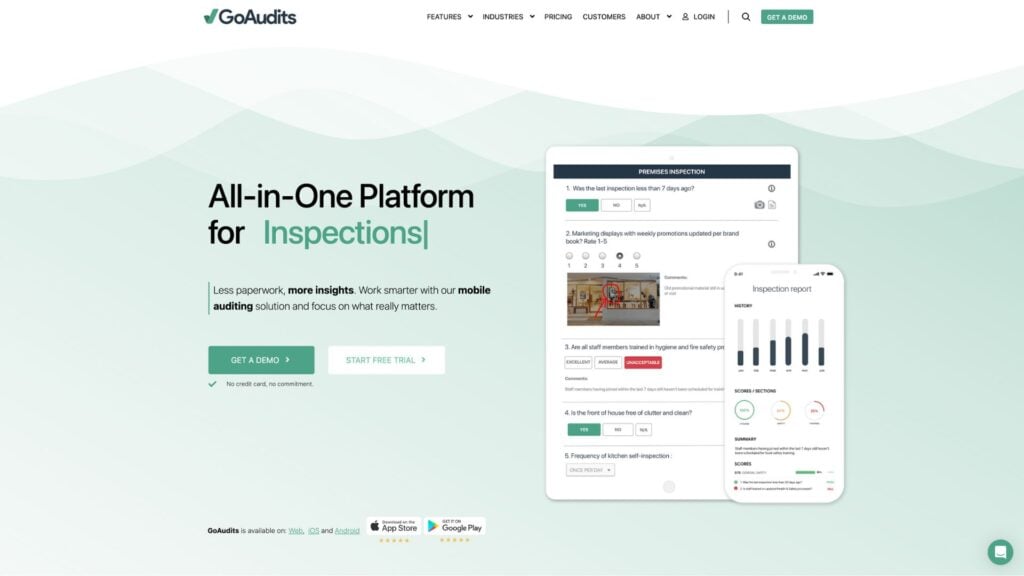
GoAudits is a secret shopping app that focuses on quality control, data collection, and compliance audits. It’s designed for internal teams that need to audit multiple sites.
Why I chose GoAudits: I liked GoAudits because it provides manager strong oversight with GPS tracking, evaluation templates, and clean reports.
Evaluations and GPS controls
GoAudits is built for consistency, which I appreciated. Its evaluation templates follow a structured, audit-style format with yes/no questions and checklist-based scoring, so every secret shopper can work from the same playbook. The app itself works on mobile phones, tablets, and laptops. Shoppers can add photos and comments to each checklist item, which I liked.
I like that the app has reference images and color-coded items, which make it clear what shoppers should be looking for. That said, I didn’t find it as intuitive to navigate as I would have liked.
When it comes to location tracking, GoAudits stands out. I really liked that shoppers can’t even start a task until the app confirms that they’re at the right site. You can set geofences to make sure that the shopper stays within that zone as they go through their checklist. Visits are time-stamped and location verified, and managers can set different rules for evaluations by location.
Tasks management and workflows
Beyond evaluations, GoAudits lets you log issues, assign follow-up tasks, and track what’s been fixed. You can create action plans, set deadlines, and use the dashboard to monitor progress.
While you can assign visits, it feels more like adding one-off events than creating a traditional schedule. Shoppers can see their upcoming visits, but not in a full calendar view. I felt like GoAudits is more of an internal auditing tool than a platform for managing external mystery shoppers.
Reports and analytics
Once a shopper completes their visit, GoAudits generates a clean report. You don’t have to format or export anything. These reports can be emailed automatically to the correct people, which I liked.
The analytics dashboard is good for spotting trends, comparing performance across locations, and tracking recurring issues. You can also monitor compliance in real time and measure how well teams follow up on past problems.
What users say about GoAudits
The app is user friendly for the tasks I have to perform. I have a clear understanding of the features, the app performance is good.
Rearranging questions or selecting answer type can be a bit fiddly when creating a new audit template.
Key Features
- GPS tracking and geofence verification
- Time stamps
- Automated reports
- Task management
Pros
- Simple user interface
- Mobile accessible
Cons
- Limited staff management
- No extensive customizations
Pricing
Starts at $17/month per site Trial: Yes Free Plan: No
-

Lumiform — Good for structured field reporting and automation
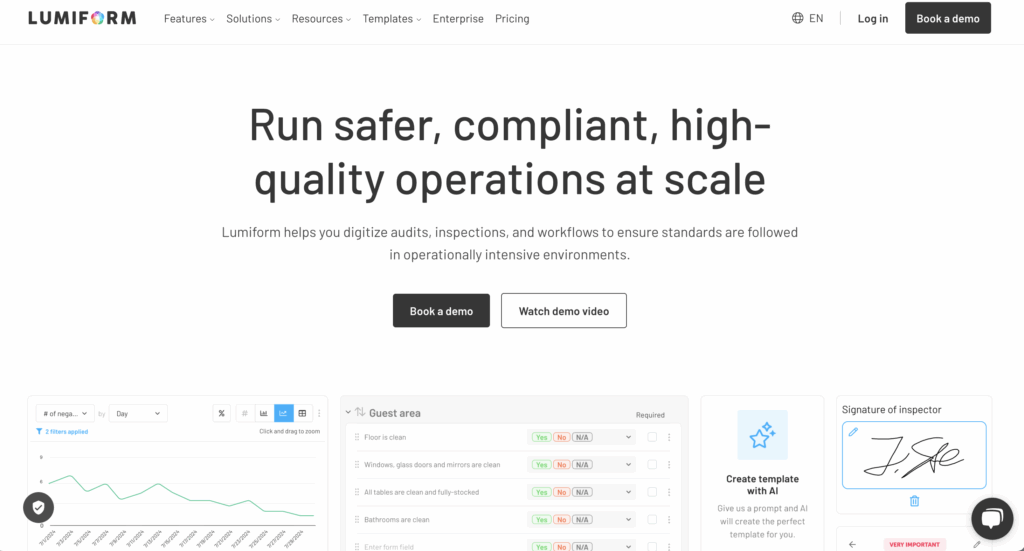
Lumiform is a flexible inspection and auditing platform that helps teams create custom evaluation forms, collect on-site data, and generate real-time reports across multiple locations.
Why I chose Lumiform: Lumiform stood out to me for its form builder, which lets you create detailed, structured evaluations for quick checklists or more complex audits.
Custom forms and automation
The biggest advantage about Lumiform is how customizable it is. You can create forms with so many difficult question types, including multiple choice, text, photos, signatures, and even QR code scans. The drag-and-drop builder is simple, but works. What impressed me was that you can add response-based logic to the forms, so shoppers can skip what isn’t relevant.
I also liked how the built-in scoring system automatically calculates performance. You get instant results as soon as a form is submitted.
Lumiform also has an AI form builder. All you have to do is describe what you need in plain language, and it builds a starting template for you. There’s also a massive library of pre-built templates across industries that you can adjust to fit your needs, which I thought was super helpful.
Reporting and data collection
Once a mystery shopper submits a form, Lumiform generates a report. You can export results in whatever format works for your team (PDF, Excel, CSV, etc.) and automatically email reports to stakeholders.
The analytics dashboard goes beyond the basics, which I appreciated. You can compare results across locations, track long-term trends, and even benchmark performance against your internal goals. If something’s going wrong consistently, you’re able to catch it.
Where it falls short
While I think Lumiform is great for building custom forms and analyzing results, there are a few features I felt were missing for managing a mystery shopping program. There’s no real way to schedule shoppers. You can set a due date, but other than that I found it pretty limiting. There’s also no way to communicate with shoppers in the app or track their locations.
What users say about Lumiform
I like the practicality of filling the forms and also attaching also attaching pictures of what is required.
Can be overwhelming at first, but the customer support is always there to help.
Key Features
- Custom forms
- Form template library
- Real-time analytics
- Automated reporting
Pros
- Extensive form-building capabilities
- AI-powered form creation
Cons
- Lacks in-app messaging
- No true scheduling feature
Pricing
Starts at $115/month Trial: Yes — 14 days Free Plan: No
-

IntelliShop — Good for turnkey mystery shopping programs with visibility
Available on
- Web

IntelliShop is a full-service mystery shopping provider offering multi-channel evaluations, consulting, and an extensive network of trained evaluators.
Why I chose Intellishop: IntelliShop stood out to me for its service-based platform model. It really seemed like a good tool for organizations seeking hands-on support and a fully managed program without having to build or run anything internally.
Evaluator program and network
IntelliShop offers full-service, multi-channel evaluations, covering online, in-person, phone-based, or hybrid assignments. Their team helps design programs based on business goals, offering flexibility in questionnaire formats, evaluation types, and location-specific requirements. Whether you need a standardized checklist or something highly customized, they work with you to build it.
The platform also handles location and evaluator assignment, pulling from their large network of trained mystery shoppers. This scale allows for large, multi-location projects while maintaining control over evaluation standards, which I liked a lot.
Reporting and consulting
IntelliShop doesn’t just deliver raw data—they translate results into actionable insights. Their reporting platform provides detailed feedback on each evaluation, backed by benchmarking tools that show how your locations perform against competitors and industry averages.
They also offer expert consulting to help you interpret the data and implement improvements. If you’re looking for more than just scores and summaries, their approach helps turn insights into action.
IntelliShop’s reporting platform delivers detailed evaluation data along with benchmarking tools to compare performance across locations and against industry standards. I thought it was interesting that in addition to reporting, they provide consulting services to help organizations interpret results and apply findings to operational improvements.
They also work directly with clients to establish a regular evaluation schedule, monitor performance trends, and adjust programs as business needs evolve. It’s a very high-touch approach intended to keep mystery shopping programs relevant and effective.
Things to consider
IntelliShop is a service provider, not a software platform. That means your team won’t directly manage secret shoppers, edit forms, or schedule visits in real time. Instead, you work through IntelliShop’s team to design and adjust your program. For some, that’s a benefit; for others, it may feel limiting.
Personally, I wasn’t a fan because this type of service gives you less control and every change requires coordination with their team. Also, many full-service solutions like IntelliShop tend to be more expensive than software-only platforms, especially for teams that already have internal programs.
Key Features
- Large evaluator network
- Detailed reporting
- Omnichannel evaluations
- Location-based assignments
Pros
- Hands-on support
- Custom program design
Cons
- Limited control over program
- Built for enterprises
Pricing
Contact vendor for price Trial: No Free Plan: No
-

Shopmetrics — Good for managing large-scale shopper operations
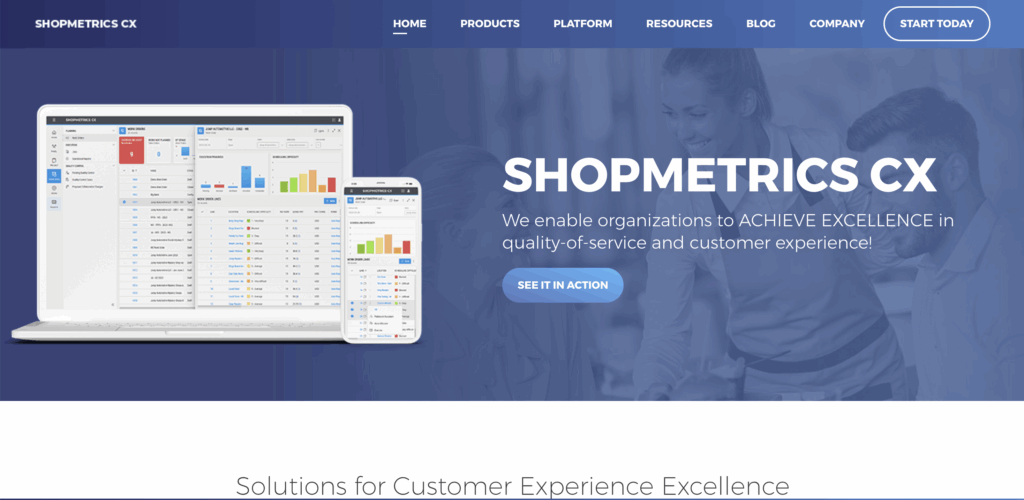
Shopmetrics is built for mystery shopping service providers who need a powerful, all-in-one platform to manage complex operations.
Why I chose Shopmetrics: Shopmetrics impressed me with its flexible form-building tools, process-driven design, and ability to handle multi-channel evaluation projects at scale.
Multi-channel evaluation
Shopmetrics supports a wide range of project types, including internal audits, phone and web evaluations, in-store demos, and more. This makes it seem geared toward programs managing multiple clients across industries. What I liked was that the dashboard helps coordinate all of these activities in one place. You can manage the different types of evaluations in one tool.
While this could be great for agencies and service providers, it seemed overly complicated for businesses managing their own internal mystery shopping programs. To me, it seemed too complex to manage just one internal program.
Custom workflows and forms
Shopmetrics offers great configuration tools for building custom workflows, evaluation forms, and dashboards. You can create form logic, layouts, and views without needing to code, which I liked a lot.
You can also define KPIs, set up visual reporting dashboards, and create different user experiences for different roles (clients, evaluators, admins, etc.). I really liked how customizable the platform is, especially for agencies with different client needs.
Data collection and workflow automations
Shopmetrics supports the full evaluation lifecycle (data capture to follow up), using its A4 methodology: Acquire, Analyze, Act, Achieve. Evaluators can complete tasks like mystery shops, audits, and surveys directly in the Shopmetrics mobile app. The app is integrated with the platform, so data flows instantly from the field to your reporting dashboard.
Once collected, results are analyzed automatically, and if performance falls below a set threshold, the system can trigger an action plan and assign follow-up tasks to the right team. I liked that managers can track issue resolution within the platform.
Key Features
- Mobile access
- Customizable forms
- Multi-channel evaluations
- Real-time data collection
Pros
- In-depth reporting
- Scalable for large teams
Cons
- Built for agencies
- Complex set up
Pricing
Contact vendor for price Trial: No Free Plan: No
-

PRISM Intelligence — Good for shopper fraud prevention and data integrity
Available on
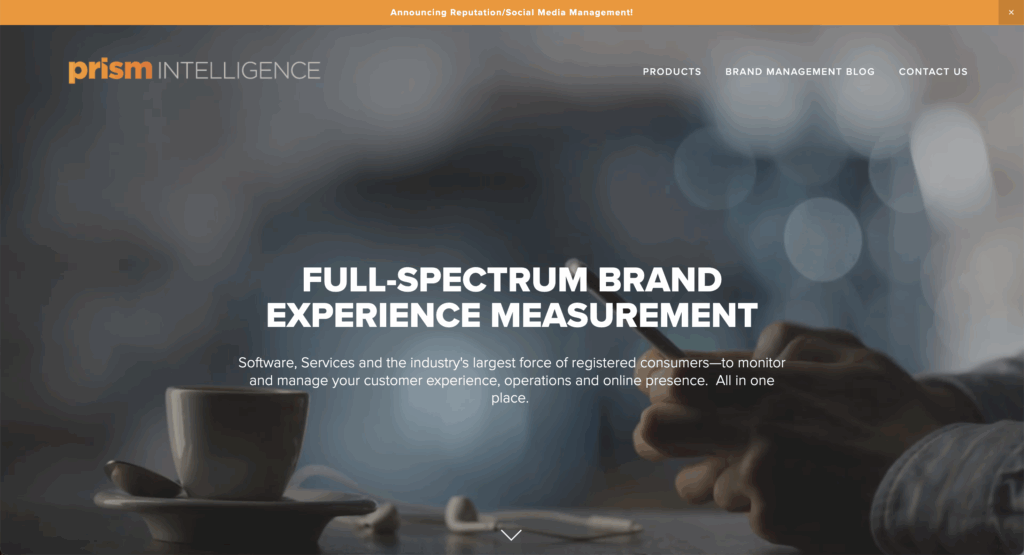
PRISM Intelligence is a mystery shopping platform for enterprises that provides evaluator sourcing, mobile data collection, fraud detection, and performance reporting.
Why I chose PRISM Intelligence: What impressed me about PRISM Intelligence was its network of mystery shoppers and its tools to detect fraud.
Evaluator network and fraud protection
PRISM’s biggest strength is its secret shopper network. It’s huge, which would mean you don’t have to worry about finding shoppers or managing availability, even for complex, multi-region programs. However, I can see this being a disadvantage if you manage internal mystery shoppers, because there’s no way to onboard or schedule them, since the software is so heavily focused around PRISM’s own network.
PRISM also has strong fraud detection, which I liked a lot. It checks image metadata, location data, and user behavior in real time to catch fake submissions or reused content. Their system flags anything suspicious before it reaches your reports, giving you cleaner, more reliable data.
Real-time data collection
Shoppers can take notes, upload photos or videos, complete forms, and log responses as they go. They can also finish reports later if needed, and everything syncs back automatically.
The app connects directly to PRISM’s dashboard, meaning data flows instantly from the field into your reporting system. That speed helps reduce the lag between evaluation and action.
Reporting and follow ups
I liked that you can compare performance across locations, track trends over time, and benchmark against industry standards. Reports can be exported automatically by API, email, or FTP to integrate with your existing systems.
When a problem pops up, PRISM’s Team Action Module lets you assign follow-up tasks to the right people right away. It keeps track of what’s been fixed, which I thought was helpful.
The main downside I found was that in order to customize workflows or dashboard views, you usually need help from PRISM’s support team. Most programs are set up and run by PRISM’s internal team, which is less ideal for teams that want more control or self-serve options. I just found that it wasn’t a DIY-friendly solution for teams that want to be more involved.
Key Features
- Mystery shopper network
- Automatic reporting
- Multiple evaluation formats
- Mobile accessible
Pros
- Fraud detection mechanisms
- Fast program rollout
Cons
- Limited self-serve tools
- Not many features for internal teams
Pricing
Contact vendor for price Trial: No Free Plan: No
Compare the Best Mystery Shopper Apps
| Topic |
 Start for free
Start for free
|

|

|

|

|

|
|---|---|---|---|---|---|---|
| Reviews |
4.8
|
4.8
|
N/A
|
N/A
|
N/A
|
N/A
|
| Pricing |
Starts at just $29/month for the first 30 users
|
Starts at $17/month per site
|
Starts at $115/month
|
Contact vendor for price
|
Contact vendor for price
|
Contact vendor for price
|
| Free Trial |
yes
14-day
|
yes
|
yes
14 days
|
no
|
no
|
no
|
| Free Plan |
yes
Free Up to 10 users
|
no
|
no
|
no
|
no
|
no
|
| Use cases |
Best all-in-one Mystery Shopper App
|
Good for mobile-friend mystery audits and checklist management
|
Good for structured field reporting and automation
|
Good for turnkey mystery shopping programs with visibility
|
Good for managing large-scale shopper operations
|
Good for shopper fraud prevention and data integrity
|
| Available on |
Web
|
What are Mystery Shopper Apps?
Mystery shopper apps are digital tools that let businesses gather real-time feedback from trained shoppers. Commonly used in retail and hospitality, they help evaluate customer experience, employee performance, and compliance with company standards.
Top apps also include reporting and analytics tools, making it easier to spot issues and improve service, cleanliness, or training. These apps are especially useful for any business that relies on in-person interactions and wants to maintain high-quality customer experiences across multiple locations.
How Do Mystery Shopper Apps Work?
Mystery shopping apps connect businesses with evaluators who assess the customer experience on-site. For businesses, the app is used to create tasks, build surveys, assign locations, and set payment for completed evaluations. You can track submissions, analyze data, and identify trends directly within the app.
Mystery shoppers browse available tasks in the app, choose assignments that fit their schedule, and follow the provided instructions during their visit. They might be asked to assess service quality, product availability, or cleanliness. Once the task is complete, they submit feedback (often with photos, checklists, or written reports) directly through the app.
The Benefits of Mystery Shopper Apps
There are multiple ways that mystery shopping apps can benefit your business, allowing you to:
Gain customer perspective
Mystery shopper apps give you direct insight into how customers actually experience your business. Shoppers report what they see, hear, and feel during real visits. This helps you catch things like unfriendly service, messy spaces, or unclear signage before they impact customer loyalty.
Gather more insight
Unlike traditional programs that rely on a small pool of evaluators and manual reports, mystery shopping apps let you scale. You can survey dozens (or even hundreds) of shoppers across multiple locations with consistent forms and easy data capture. This gives you a broader range of perspectives and a more accurate understanding of what’s happening on the ground.
Identify room for improvement
With detailed feedback, you can quickly spot what’s hurting your customer experience. These insights allow you to act fast. For example, you might update training, personalize customer service, or speak to a specific employee before small issues become big problems.
Improve consistency
Using custom surveys and checklists, you can ensure every shopper follows the same evaluation process. This consistency helps you compare performance across all locations and make sure every customer receives the same, high-quality experience.
Act on feedback
The best apps help you use data to create real, lasting improvements in how your business operates and how customers feel.
How Much Do Mystery Shopper Apps Cost?
Most mystery shopper apps don’t list fixed pricing because they offer custom quotes based on your needs. Costs typically depend on how many locations you’re evaluating, how many shoppers you plan to use, the complexity of your tasks, and whether you need help with survey design or data analysis.
Connecteam is one of the few options with transparent pricing. It’s completely free for businesses with up to 10 users. Paid plans start at $29/month for up to 30 users, making it a cost-effective choice for teams of all sizes.
FAQs
A mystery shopper is someone hired to evaluate a business’s customer service, cleanliness, or other aspects by acting like a regular customer and reporting on their experience.
Companies send mystery shoppers to visit a store, restaurant, or service location. The shopper completes a checklist or form based on their visit, often including photos or written feedback.
Yes, mystery shopping is a legitimate method businesses use to assess and improve customer experience. Just make sure to use reputable platforms and avoid companies that ask you to pay to join.
Mystery shoppers typically earn between $10 to $50 per assignment, depending on the task complexity. Some specialized jobs pay more. Shoppers are usually reimbursed for any required purchases.
No, mystery shoppers don’t pay to participate. However, some tasks may require buying a product or service. These purchases are usually reimbursed by the company after the assignment is completed.
You can pay mystery shoppers per task, by the hour, or per project. Most businesses use flat-rate payments and reimburse shoppers for pre-approved expenses.
While mystery shopping provides helpful insights, it can produce biased or inconsistent data—especially if the shopper is inexperienced or in a bad mood. That’s why using good training and clear guidelines matters.
Connecteam is one of the best apps for managing mystery shoppers. It lets you schedule tasks, collect real-time reports, communicate with shoppers, and track performance across locations—all in one place.
You can sign up with mystery shopping companies or job platforms that list assignments. After registering, you’ll get access to tasks in your area, often with training included.
Mystery shoppers help businesses see their operations through the eyes of a real customer. This helps identify service issues, uncover training needs, and ensure brand standards are being met.
The Bottom Line on Mystery Shopper Apps
Mystery shopper apps help you uncover what your customers are really experiencing—so you can take fast action, improve service, and protect your brand.
Among all the options, Connecteam is the most complete and flexible solution. It lets you manage every part of your mystery shopping program in one place: build and train your team, schedule visits, collect detailed on-site reports, and get real-time insights across locations.
Whether you’re running a small local program or managing dozens of shoppers across regions, Connecteam keeps you in control, responsive, and ahead of the curve.
👉 Try Connecteam for free today and build a smarter, more effective mystery shopping program.



